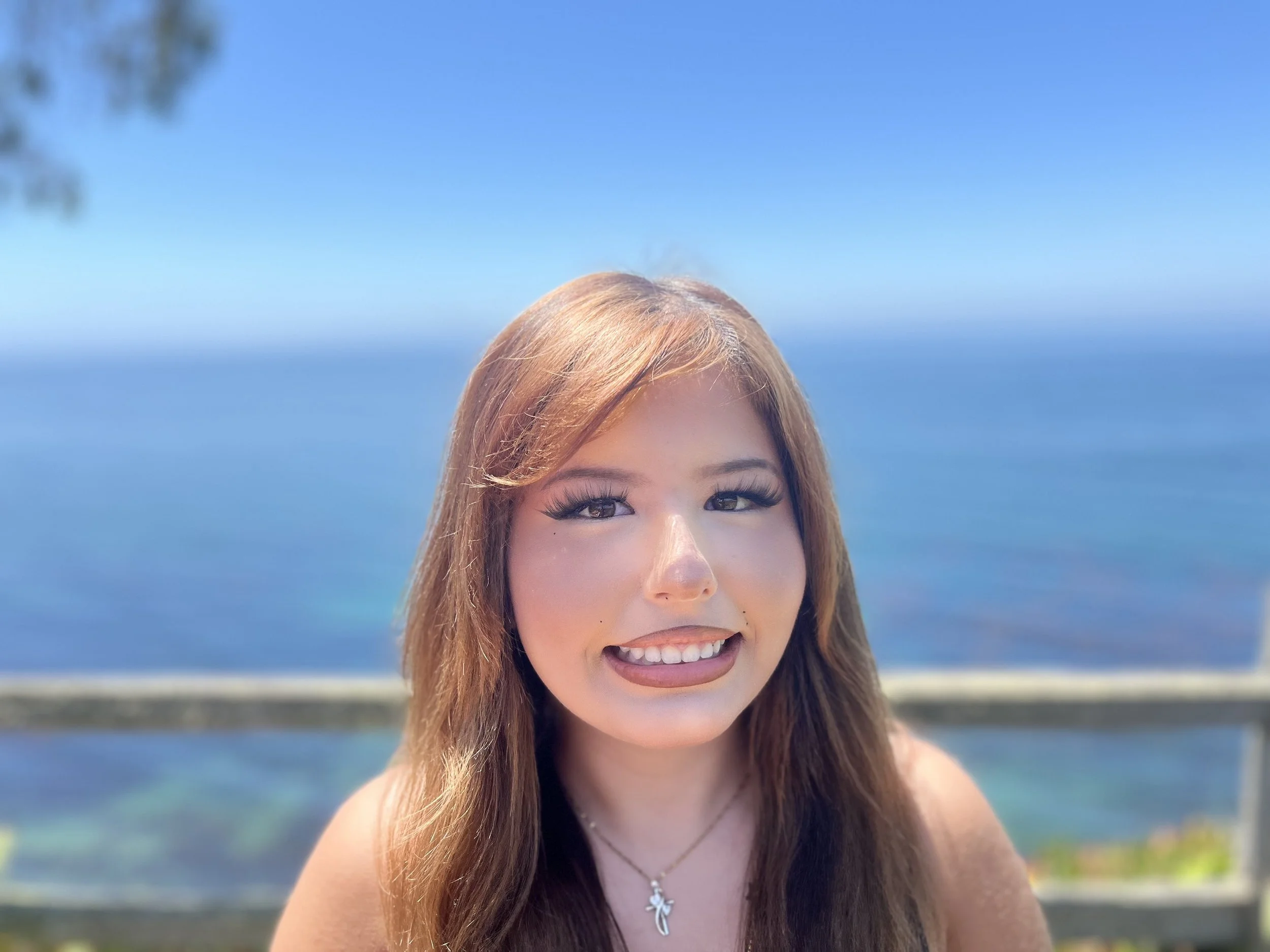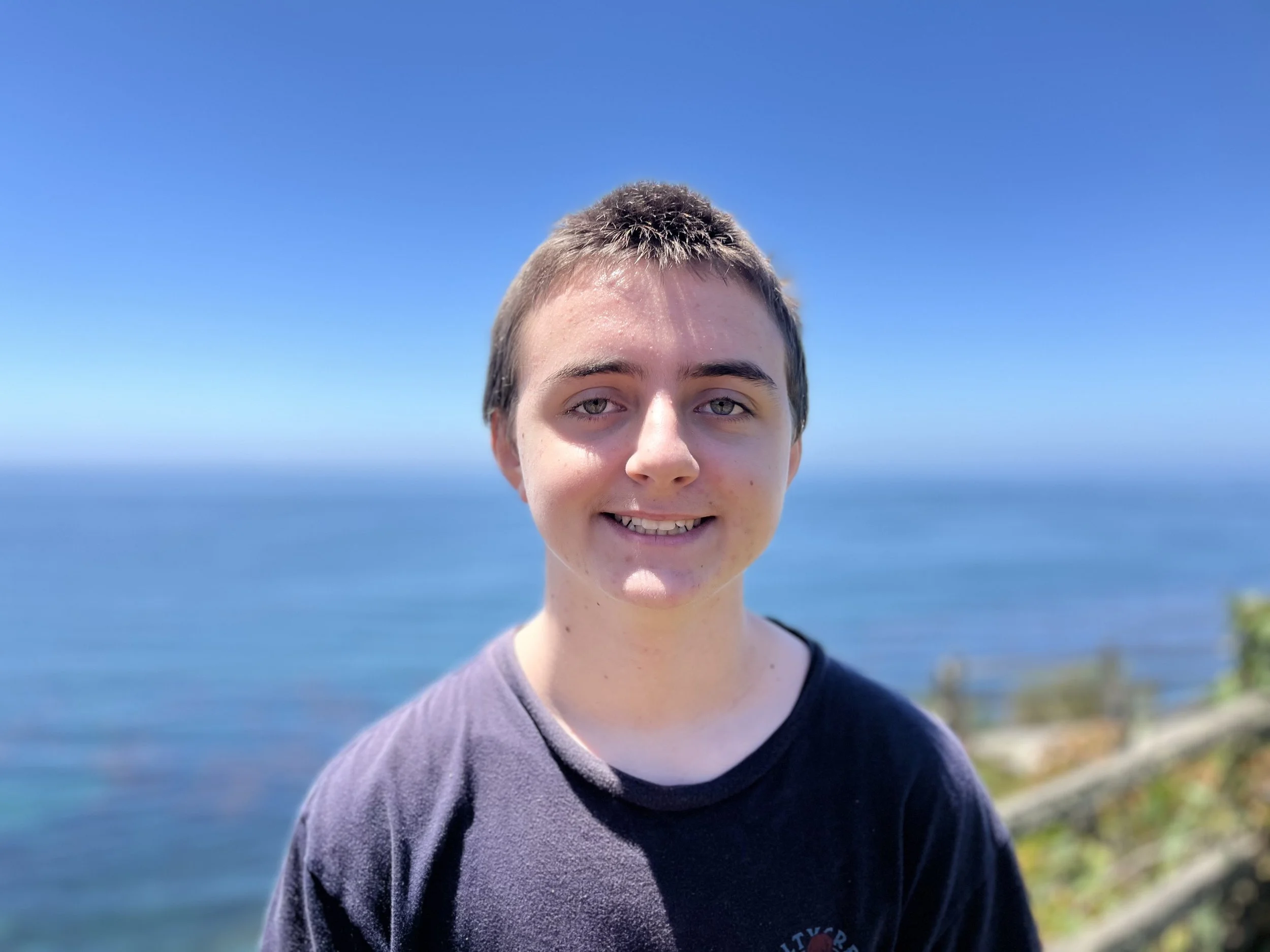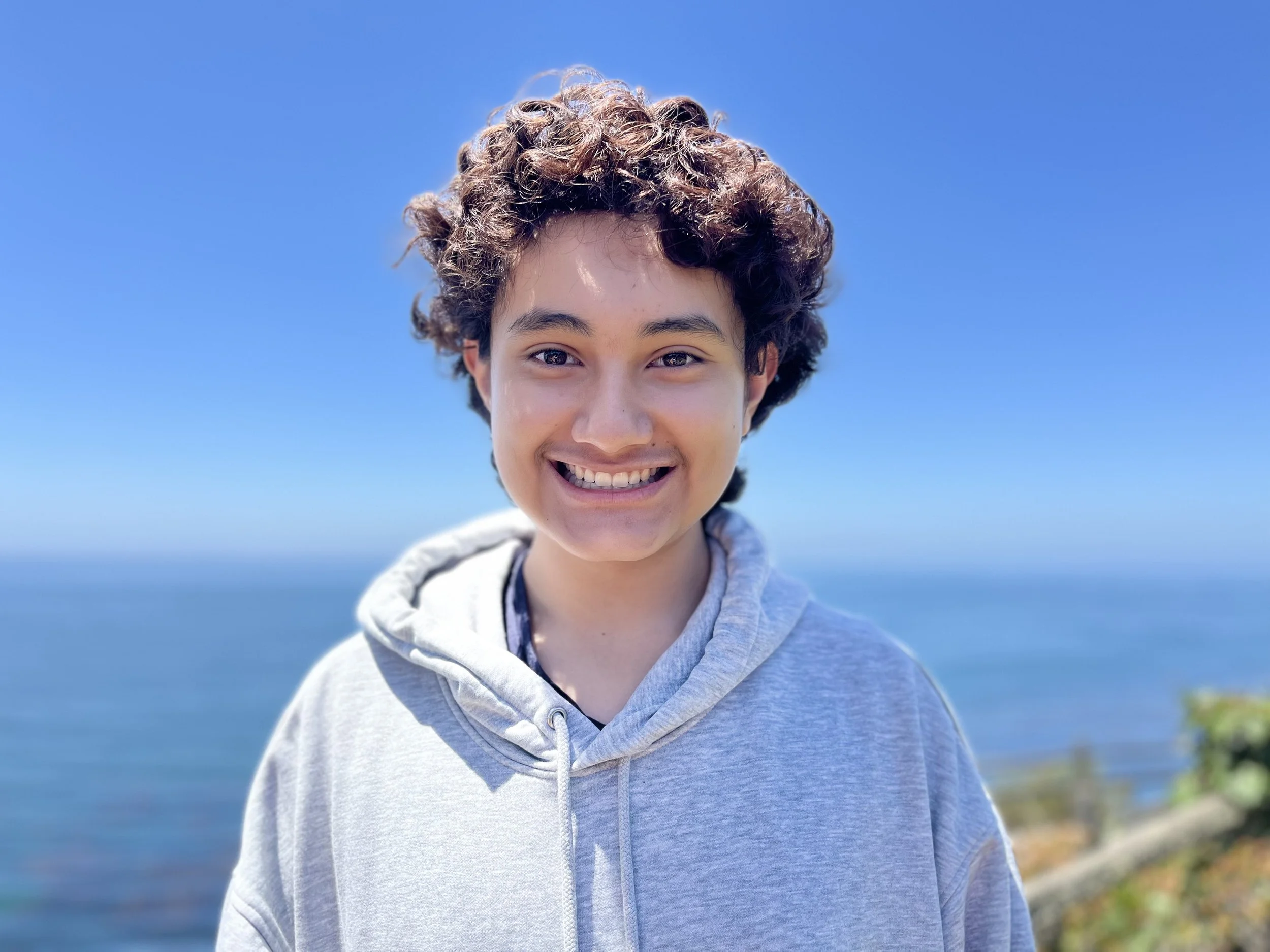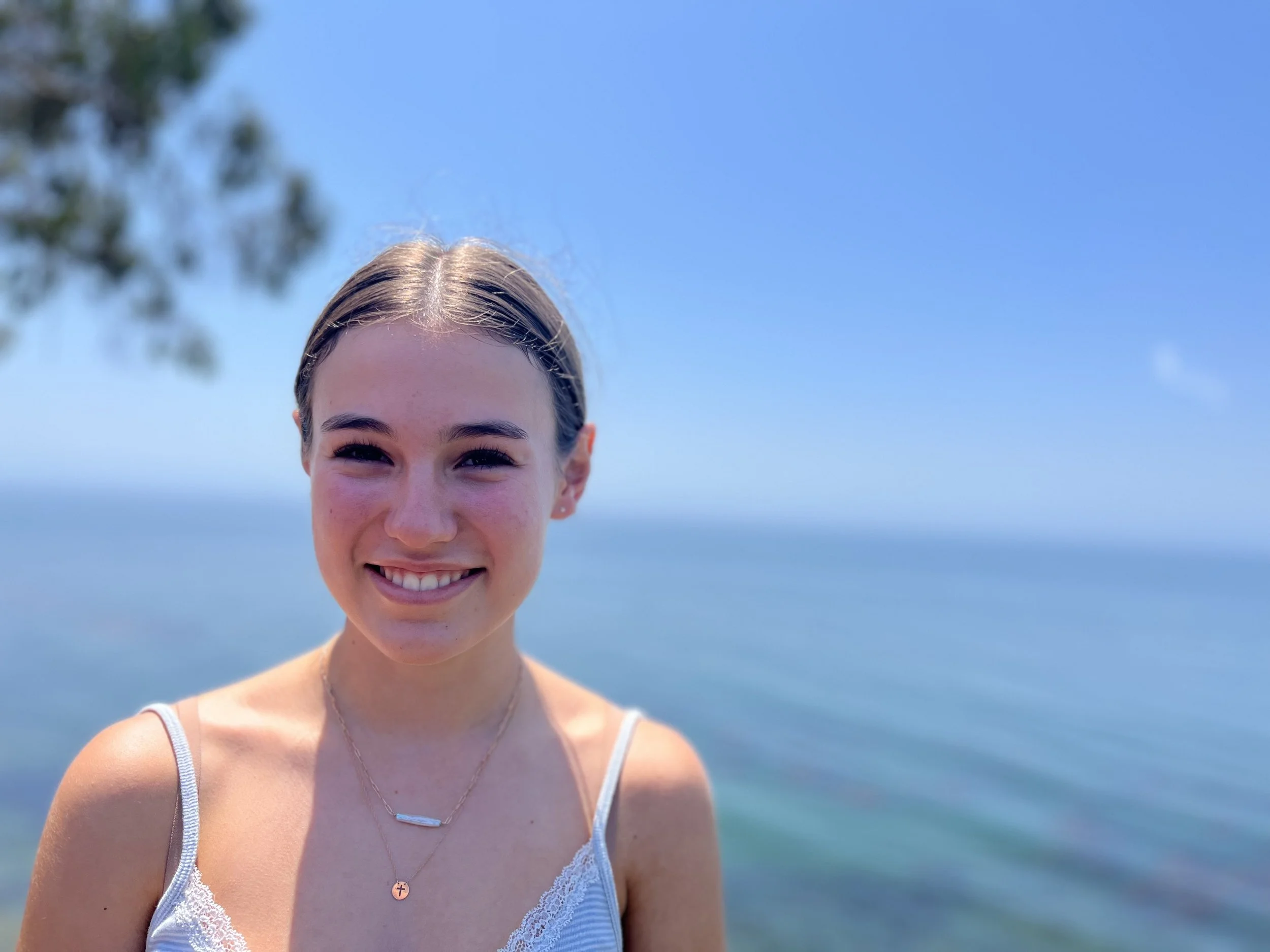
Through the efforts of a generous donor and a talented strategic advisor within the SAFE Network, we had the privilege of working with a variety of students across high school South Santa Barbara County in a collaborative internship experience called Tzedakah. Meaning "righteous behavior" or "justice" in Hebrew, the Tzedakah internship was designed to give these students an up-close look at the reality of human trafficking (sex and labor) in Santa Barbara County and provide an on-ramp for them to get directly involved in raising awareness for SAFE. These students developed an action plan, conducted several interviews, participated in community walks, and created educational content that SAFE will utilize as we invite more people to join us in the fight. They're even making plans to launch anti-human trafficking clubs in their respective schools this year! Stopping exploitation will require change and effort from every part of the community. The TDC Tzedakah Foundation interns give us hope!
LOCAL TEEN ACTIVISM
To hear more about the work being done by the Therapist Development Center’s Tzedakah Foundation Summer 2025 Interns, follow this story from KEYT News.
STUDENTS FOR SURVIVORS:
TEENS AGAINST TRAFFICKING
HIGH SCHOOL CLUBS
Click the links below to follow the clubs!
2025 SUMMER INTERNSHIP PROJECTS
-
As teen activists, we are taking action to support other teens in need by organizing an essential items drive for Noah’s Anchorage, a local youth shelter that provides emergency help for teens facing homelessness or unsafe situations.
Our goal is to spread awareness and collect donations like clothing (need more plus size), hygiene (shampoo, toothbrush, toothpaste, female beauty products like heat protectant, makeup wipes, face wash, pads, etc.), and other basic necessities to support the teens who rely on the shelter.
Our target audience includes community members, especially local youth, families, teachers, and small businesses who may be interested in helping or spreading awareness. We hope this project makes a difference by showing how teens can support other teens.
Our drive is going to be outside a store like Target where community members can buy and drop off essential items. We also plan to spread the word through the San Marcos High School Students for Survivors club that was started last year. We plan to talk to classmates, teachers, and other community members.
We are going to build a strong support network, we will reach out to friends, family, and others we already know. We also want to create a flyer that explains the purpose of the fundraiser and how people can help.
We would also include some photos showing the donation stand, community support, and the items we collect. The flyer we make could also be shared on the site.
Our project shows how local teens can make change in their communities. It shows the importance of support and taking action to help those in need. We want to inspire others to get involved and make a difference too.
One idea for the fundraiser is to set up a donation collection stand in a visible community space, like a school or library, where people can drop off supplies. We also plan to spread the word through the San Marcos Students for Survivors club that was started last year. We plan to talk to classmates, teachers, and other community members.
To help build a strong support network, we will reach out to friends, family, and others we already know. We also want to create a flyer that explains the purpose of the fundraiser and how people can help.
We would like to write a short essay to post on the SAFE SBC website that explains the mission of the fundraiser, what inspired it, and how it helps Noah’s Anchorage. We would also include some photos showing the donation stand, community support, and the items we collect. The flyer we make could also be shared on the site.
We think this project deserves to be on the SAFE SBC website because it shows how local teens can make change in their communities. It shows the importance of support and taking action to help those in need. We hope to inspire others to get involved and make a difference too.
-
As a teen activist I am creating and managing a page on SAFE SB’s website. My passion is using digital tools to fight human exploitation. Under the “Get Involved” tab, the “Local Teen Activism” section highlights a variety of “Passion Projects” which explains what other teen activists are doing to combat exploitation in Santa Barbara. I am the contact person for these teen activists who want to inform the public on the Teen Activism Page. The activists will contact me and I can organize all these requests to be sent as a group for easier management by SAFE’s website manager.
I am also the digital liaison for the San Marcos High School club, “Students for Survivors” which focuses on raising awareness and trying to combat exploitation. For this club, I will be fighting back digitally by helping students understand the importance of learning about how digital exploitation contributes to exploiters to groom potential victims and how scary that can be.
Having this information available to the general audience and potentially for victims to access will provide valuable resources and knowledge about exploitation and how to combat it as well as guidance for those who may need it.
-
Silently hidden in our community. Behind closed doors and within our fields, human trafficking creeps itself within our community. But what can we do to combat it?
Labor trafficking infests itself in our community in a few ways, for example in agriculture and restaurant business. Agricultural labor is a prominent area of labor trafficking, where its employees are undocumented migrants from Latin America. In search of better quality of life and opportunity, oftentimes citizens of Latin American countries migrate with the help of coyotes (individuals who aid in illegal immigration across the US-Mexico border for a premium). Then the undocumented migrants are forced into paying off their amounting “debt” through some form of hard labor. This situation is defined as labor trafficking, since migrants are coerced into “working off” their debt against their will or otherwise they endanger themselves or their family.
In this hard labor, employers often do not follow labor laws because their employees are undocumented. Employers are not required to provide basic necessities like water, shade, restrooms, and rest. Furthermore, out of fear of being reported to Immigration and Customs Enforcement (ICE), undocumented laborers do not speak out against unjust working conditions.
Escape from such situations is very difficult, because the victims of labor trafficking work to provide for their families or household and risk losing a form of stable income. They also risk being reported to ICE and deportation. These risks are especially amplified with the current hostile political climate towards illegal immigrants in the United States.
Furthermore, employers go unpunished for the exploitation of undocumented migrants, never being held accountable for their actions. This lack of justice makes undocumented migrants viewed as cheap, easy labor and prime targets to be taken advantage of.
So what are some solutions to this injustice? First, we can hold accountable the employers that cavalierly hire undocumented migrants and provide inhumane working conditions. We need enforcement of labor laws and ensure the prosecution of employers. They should not be allowed to freely exploit undocumented migrants.
Second, our country can reform our current system of immigration to provide more clear paths to achieving residency or receiving a green card, especially for the undocumented population currently residing in the U.S today. According to the U.S Department of Agriculture, 42% of all agriculture workers were undocumented migrants in 2022. As such, we can identify the need to foster these clearer paths in fear of losing 42% strength in our agricultural economic sector.
Additionally, having residency or a green-card offers the same rights and benefits enjoyed by American workers. This would not only create smoother paths for workers to report inhumane working conditions, but would also make it more likely for employers to be held accountable should they choose not to follow basic labor laws.
We are all humans and are all deserving of being free from exploitation, no matter our ethnicity or immigration status. We all have an obligation to fight for the equal rights and protections of everyone in Santa Barbara County regardless of immigration status.
-
TBD
-
TBD
-
Being a teen in high school, I’m always looking for new clubs to join and interesting things in my community I can learn and help with. My good friends started a club at my high school to raise awareness about the fact that sex trafficking is a reality in Santa Barbara. Going into this my only knowledge on this topic was the idea that this only occurred in third world countries. Oh how I was wrong! It is currently happening in places I visit everyday.
I got hooked on this topic right away and couldn’t stop learning more. I specifically became more interested in how a person can be at risk, how exactly someone so young can fall into this trap. It is so easy for someone to be vulnerable for such a horrible form of exploitation. Why and how does this happen? Adults are the people that we want to believe are there to help us. In reality, some recognize how vulnerable we are and take advantage. Even though we learn about “stranger danger” in elementary school, all of us are still at risk. Again, the reality is that some adults who make the effort to build a relationship with us actually don't have our best interest at heart. This idea didn’t sink in until I learned about sex trafficking. This shows that no matter what your background is, sex trafficking can truly happen to anyone, even myself.
Unfortunately, sex trafficking is common in my community with victims being targeted very young, ages 12 and 13. Since this is such a growing problem here in our community I dove into finding what resources there are for support. Noah’s Anchorage is a youth shelter for ages 12-17 for the unhoused, those who are potentially at a higher risk of exploitation.
After spending some time at this youth shelter and talking with the staff my knowledge and passion deepened. Noah’s Anchorage feels very important to me because it is a valuable resource for those who need that support and helps prevent individuals who are vulnerable from going down the wrong path. “Whether they're on the earlier end where they may be experiencing some trauma in the home or abuse, or they are potentially going out and starting to get introduced to people that are unsafe or putting themselves in dangerous situations all the way to they’re actively system-involved,” says Amy Tovias (Operations Director of Noah’s Anchorage YMCA youth shelter). I will continue to spread awareness about the vulnerability of youth in our community and fight back against this heinous crime against children.
-
As a teen activist, my focus is to collect data to support grant writing. These grants will help fund efforts to fight human exploitation in Santa Barbara. I will collect data in the high school clubs ‘Students for Survivors.’ This data collection will be specific to what students are learning from attending club meetings. A survey will assess students’ current knowledge about human trafficking in general. Students will take the same survey at the end of the club to determine what each teen has learned from the specific meetings.
In addition, two grant writers will teach me more local grants, along with SAFE SB’s nonprofits such as Noah’s Anchorage. Dr. Erika Felix, who is overseeing the SAFE grantee evaluations, will engage me in a project to evaluate the results of an anti-trafficking alternative high school curriculum. Along with Dr. Felix I will work with another grant writer associated with SAFE SB.
The purpose of pursuing knowledge of grant writing is so that my data collection will serve as evidence to support us teens in winning these grants. This will enhance our ability to fundraise for SAFE’s partners as well as our capability in raising awareness to the community.
-
As a teen activist I co-founded “Students for Survivors,” a club that educates youth about Human Trafficking in Santa Barbara and am working on educating my peers about the negative impact careless use of language can have.
Since we were children we’ve learned that our language has power. We’ve learned to treat others how we want to be treated, and as we grew up we learned that racist language can hurt others, but what we were never taught was that our language also can be the leading cause of sexism around the world. This obliviousness to the power to promote sexism is what causes many young girls to be vulnerable to sex trafficking. These are microaggressions and are all too commonly used: name calling such as “run like a girl,” “pimp,” “John,” “bitch,” “ho,” etc. can be one of the contributing factors that pushes children into the tragedy of sex trafficking because girls learn from this language that they are objects to be used. But the most important thing is that I didn’t look at this problem and feel sad or guilty or hopeless: I took action and worked along with three other students to get involved and make a change.
I co-founded the ‘Students for Survivors” at San Marcos High School where we gathered 200+ members to be a part of our club. I also wrote an article to educate the readers about how our language we use in our tight friend groups have power outside of it. I am going to get my article published in San Marcos’ school newspaper so that I can teach peers about the power of their language and its direct effects on sex trafficking of youth.
-
When walking in Santa Barbara, people notice how beautiful and safe this town is. But what we don’t tend to look for are people and places that lack support in our community. This summer, as a 14 year old, I had the opportunity to participate in a teen internship that made me aware of the issue of Human Trafficking and how to fight back. Sadly enough, youth are becoming victims to trafficking from ages as young as 12-13.
By the third week of the internship, we were beginning to work with staff at Noah’s Anchorage and talk with licensed social workers about the issue. I saw kids preparing breakfast at Noah’s rather than at home. Their age is my age. Two girls sharing a fun time, but why here rather than at home? I would be doing this at home with my friends… Then the reality hit me: they were there because their lives were so drastically different from mine. I was at Noah’s for a very different reason.
They were there because they were vulnerable. Noah’s Anchorage is a free 24/7 crisis and prevention center that provides short-term residential services and non-residential drop-in support to youth 12 to 17 who are homeless, at risk of homelessness, or in an unsafe environment. “We are here doing all of the coordination for youth to get their goals met,” said Amy Tovias (Operations Director).
Youth need someone actively supporting them through their vulnerable teen years. We are seeking funding through SAFE for a case manager position at Noah’s. “[Case mangers] do a lot of outreach to other resources, depending on the youth's goal,” stated Vannessa Loza (Residential Director). A case manager not only offers emotional support but also builds a bridge between the youth and the services they need. When working with a case manager, youth build a personalized connection with them through their guidance.
Santa Barbara can offer more than just a scenic environment: with your help it can offer a lifeline. By donating to SAFE SB, who’s partnered with Noah’s, you’re supporting the critical role of a case manager. Someone who helps vulnerable youth feel seen and supported. Your contribution will ensure that no youth will have to navigate their vulnerability alone.
-
“Trust is really hard when you've been seen as a commodity. It's hard to feel like anyone is really safe,” says Kate Wedell, founder of Cherished-LA.
Cherished-LA is an organization empowering trafficked women in their journey to heal and grow. Wedell’s experience with trafficking in the music industry paved her path into founding Cherished-LA, to provide support and a sense of belonging to other victims.
In all human relationships, trust is one of the biggest checkboxes for healthy and positive growth. Traffickers use grooming tactics to take advantage of those without trusted adults because victims can be manipulated easily into depending on the wrong groups of people. When Wedell realized she was being trafficked for sex, her ability to continue trusting people was shattered.
Although she broke free from sex trafficking, many aspects of that life continue to shape how she views the world.
“You can’t just get back out in the world and go get a job, there’s so much detachment, triggers happening…,” says Wedell.
Victims of trafficking have a difficult time assimilating into a nurturing society because escaping doesn't always mean the trauma ends. Their lives are filled with mental and physical struggles that take over every part of their healing process and sense of self.
Part of the continuing trauma is the challenge of rebuilding their identity as a person who deserves love, agency, and belonging. Through the many years of abuse and neglect, victims have a damaged conception of their self-worth. Because their trafficker has convinced them that s/he is the most important person in their lives and that they are nothing without them, victims put their exploiters' needs above their own.
In fact, SB deputy DA Megan Chanda said, "Victims of sex trafficking often testify on the behalf of their abuser.”
The degrading and abusive conditions of sex trafficking forces the victims into becoming accustomed to submission and chaos. Traffickers cause this coercion by controlling a victim’s basic necessities, restricting their freedom and movements, and preventing the victim from seeking help, etc. Living life constantly dependent upon traffickers can lead to mental disorders such as PTSD, depression, and anxiety.
Wedell recalls that, “There’s so much detachment, dissociation, and disconnection from your own body… You can’t connect to people because you’re disconnected from yourself.”
So, these disorders negatively impact the victim’s ability to complete daily tasks like going grocery shopping or applying for a job. They aren’t able to live a regular life because the victims can’t function without the nagging feeling of danger behind their shoulder.
With the degree of mental and physical damage they’ve experienced, healing from their trauma is a recursive path. It takes a lot of courage and effort to take one step forward when victims know they will go two steps back; yet, they try because they want to become a healthier version of themselves. It’s important to have compassion for these victims and provide support because their uncontrollable past does not define them.












